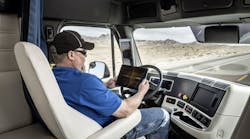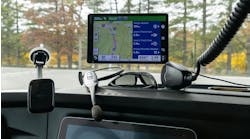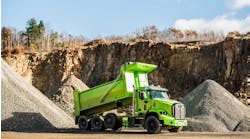Texas is poised to become the next state to allow testing of fully autonomous vehicles on public roads after the state’s legislature approved a bill creating the basic framework manufacturers will need to follow.
The legislation was passed by the House on May 20. That approval came several weeks after the Senate unanimously backed the measure. Once signed by Gov. Greg Abbott (R), it will become law as of Sept. 1.
"The Texas economy fosters innovation," said Sen. Kelly Hancock, author of the bill and chairman of the state Senate Business and Commerce Committee. "Automotive technology is advancing at a rapid pace, and we need to be prepared for it."
Texas did not previously prohibit autonomous vehicles; there has already been limited autonomous testing near the cities of Dallas and Austin. However, the legislation was meant to clarify the expectations and liabilities concerning the emerging technology, Hancock said.
The bill allows testing fully autonomous vehicles on public roads, provided the vehicle is in compliance with all federal laws, is registered in the state, has proper insurance and includes a data recorders.
It also will not “require a licensed human operator to operate a motor vehicle” but the “owner of the automated driving system is considered the operator,” and could be held responsible if there is an incident. The legislation also prohibits local entities from imposing their own rules or fees for autonomous testing.
According to research from the National Conference of State Legislatures, 15 states already have approved legislation allow some form of testing of autonomous vehicles. Governors in several other states have signed executive orders related to autonomous vehicles.
Peterbilt Motors, based in Denton, TX, has been testing autonomous trucks on closed test tracks in the state for a number of years. Fleet Owner’s most recent visit to Texas to view Peterbilt’s development was in December 2015.



